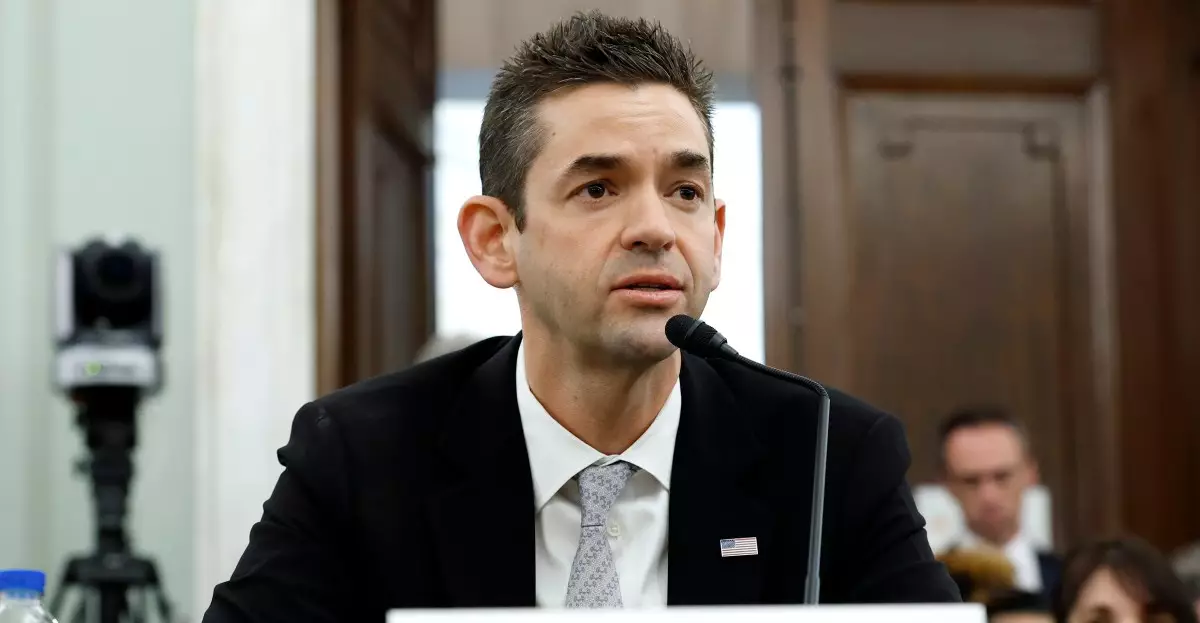In the world of politics, the interplay between personal beliefs and public service often raises eyebrows, and the situation surrounding Jared Isaacman’s nomination to lead NASA is a striking example of this dynamic. Issued amidst turbulent political climates, Isaacman’s candidacy was not merely evaluated based on his accomplishments in the aerospace sector or his wealth; rather, it fell victim to partisan scrutiny stemming from his past philanthropic contributions to Democratic candidates. This development underscores a growing concern about how political affiliations could overshadow the qualifications essential for leadership positions in critical federal agencies.
The Unraveling of Isaacman’s Nomination
The abrupt withdrawal of Isaacman’s nomination reflects a broader dichotomy within the contemporary political landscape. Reported by multiple sources, including Semafor and The New York Times, the withdrawal followed revelations that Isaacman donated to influential Democratic figures such as Senator Mark Kelly from Arizona. This decision, orchestrated by the Trump administration, demonstrates how political loyalty factors greatly into appointments in a field that should ideally prioritize expertise and vision over party alignment. Isaacman, the founder of Shift4 Payments and an avid supporter of commercial space initiatives, has repeatedly proven his commitment to expanding human access to space. Yet, instead of celebrating his accomplishments, the political arena chose to highlight his financial affiliations as a disqualifying factor.
Budget Cuts and Future of NASA
In tandem with this personnel shakeup, the proposed budget for NASA reveals a concerning trajectory for the future of space exploration. The Trump administration’s announcement of a nearly 25% funding reduction raises eyebrows within the scientific community. Critics, including The Planetary Society, have called this budget justification an “extinction-level event” for NASA’s scientific agenda. With such significant funding declines, particularly a staggering 47% cut in science programs, the worries over NASA’s ability to maintain its role as a pioneering leader in space research are palpable. The message seems clear: financial constraints will severely impact upcoming missions, technology enhancements, and the very essence of scientific exploration, thereby limiting humanity’s quest to push the boundaries of our universe.
Implications for Leadership at NASA
The quest for a new NASA administrator continues, with the underlying requirement that the candidate aligns closely with President Trump’s “America First” agenda. This requirement could potentially eliminate highly qualified individuals whose viewpoints and contributions might benefit the agency. An unnamed former senior NASA leader remarked that the budget request and the leadership vacuum symbolize “just a going-out-of-business mode.” Such sentiments strike at the heart of what is at stake when political strategies supersede genuine leadership qualities.
The precarious situation serves as a critical reminder that the selection process for the most pivotal roles within government agencies can be an exercise in political maneuvering rather than a thorough vetting of capability and vision. The fate of NASA, as it grapples with both personnel and budgetary challenges, could dictate the United States’ standing in global space exploration for decades to come, awakening questions about whether expertise can prevail amidst the tides of political discord.


Leave a Reply